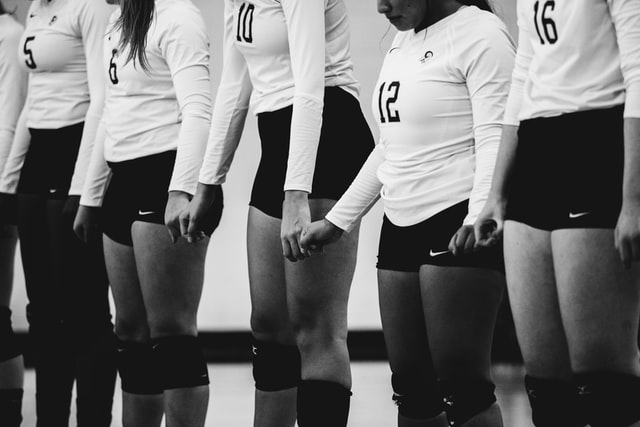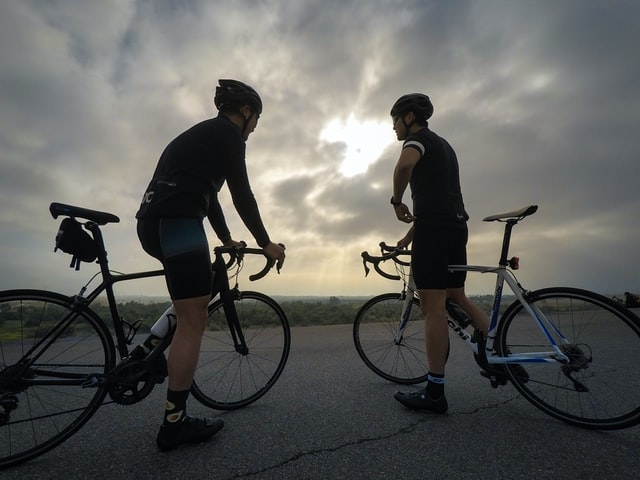PLAYBOOK DEVOTIONAL
Athlete, Think Repair
Jason Cooper
Matthew 5:23-24 (NIV)
Therefore, if you are offering your gift at the altar and there remember that your brother or sister has something against you, leave your gift there in front of the altar. First go and be reconciled to them; then come and offer your gift.
When Draymond Green punched his teammate Jordan Poole during practice, it reminded me of a fight I had with my teammate Burke. I yelled at him and provoked him, then got behind a door and locked it, because I was scared he was going to punch me in the face.
Teammates are supposed to get along.
But every week teammates are caught on camera fighting on the sideline and in huddles. There might even be more fighting among teammates than against opponents. But we shouldn’t be surprised by this.
Think of those who you’ve had the biggest fights with or said the harshest words to – or wanted to say. Think of those who have said and done the most hurtful and lasting things to you.
It’s often the people closest to you – a parent, sibling, cousin, friend, teammate, coach, or person you dated.
That’s because your emotions are intertwined with theirs. You are around them a lot. You are vulnerable with them.
You have a power struggle or rivalry with them. They try to control you and vice versa. They make your insecurities surface and vice versa. You are envious of them and vice versa.
So, infighting makes perfect sense. It’s the norm. But, sadly, repair is not.
When I watched Draymond Green’s press conference after he punched Jordan Poole, Draymond seemed to appreciate the magnitude of what he did.
He explained how what he did affected Jordan Poole’s family. It seemed like Green absorbed some of the pain he caused and that had healing power.
But what if Draymond went a different route?
What if he said, “I don’t want to talk about it”?
That would’ve been avoidant.
What if he said, “Jordan gets on everyone’s nerves. He had it coming”?
That would’ve been blame shifting.
What if he said, “He hit me first. Didn’t you see that? I’m not a bad guy”?
That would’ve been gaslighting.
What if he said, “You guys have no idea what I’ve been through”?
That’s playing the victim.
What if he said, “It could’ve been a lot worse. It was only one punch”?
That’s downplaying.
Look at all the ways we can dodge repair. We are good at dodging because it’s hard to take responsibility for the hurt we cause others. It comes naturally to fallen people.
Draymond’s way into the light was going to the heart of what he did and the heart of how Jordan Poole experienced it. Those are two essentials to repair.
Athlete, is there someone you had a problem with or someone who had a problem with you? Is there a broken or fractured relationship that nags you? There probably is for all of us.
It may or may not be time to repair.
The cool thing about repair is that there isn’t a timeline. Days, months, years, even decades may go by. But it’s never too late.
Healing doesn’t have bounds because pain doesn’t. If the wound is still there, there can be repair.



